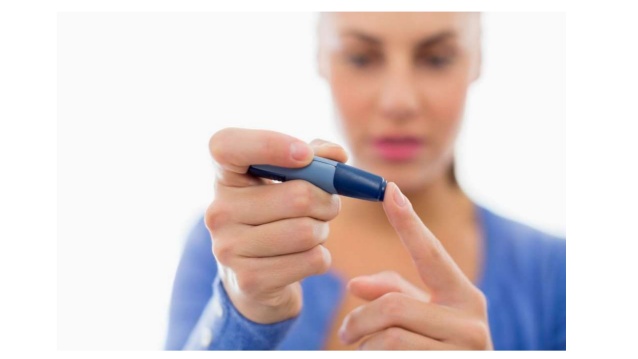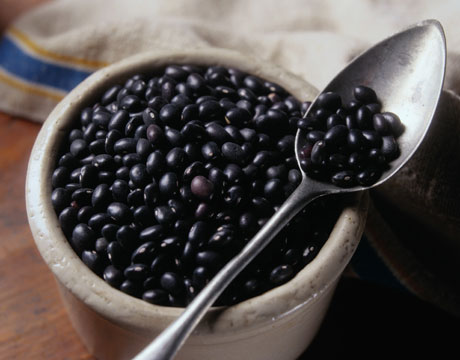a silver lining: my answer to hypoglycemia after gastric bypass
Three years after gastric bypass surgery, things were going well. I was maintaining my weight and training for a half marathon. But then it all came to a screeching halt when my blood sugar started plummeting without warning.
The next several years were a nightmare. Trying to find a solution sent me to four doctors and several nutritionist seeking answers to an seemingly incurable problem. Finally, I was referred to an endocrinology who diagnosed me with severe case of Reactive hypoglycemia (also known as post-surgical or postprandial hypoglycemia)
For six years I have fought the battle of hypoglycemia and have had little, if any, control over my blood sugar levels. After taking a prescription medication, (Arcobose, to help with carbohydrate absorption) and adding a thyroid medication I found some relief, but I was still very sick. My life was ruled by unpredictable rises and falls in blood sugar levels. I was unable to exercise or control my weight.
In June of 2014, I made an appointment to see Dr. Walter Pories. Dr. Pories is a re-nowned surgeon in the field of bariatrics and is currently doing research and trials on the cause and cure of post-surgical hypoglycemia. After listening to my story, he explained the "medical and scientific" reasons behind my problem and offered a solution.
He suggested that I replace my vitamin routine with 2 Silver Centrum for Women. That's all. Just 2 multi-vitamins (with iron.) I was shocked that this solution could be that simple. He suggested that it might take up to a year to see any results. However, I began to see result in just a few weeks. Seven months have passed and to my amazement my blood sugars have stabilized. I am able to eat a healthy and normal diet and I was able to discontinue my Acarbose. I did have leg cramps for a few weeks, but they have dissipated. I also added additional Vitamin D several months later for joint pain.
If you are sufferering from post sugerical hypoglycemia, there is a solution. I recommend that you see your doctor and continue to find a solution that works for you. I have discovered that my thyroid medication plays a huge part in regulating my hypoglycemia and I am currently monitoring my blood work and awaiting my nine-year checkup. I highly recommended that you get regular follow-ups including blood work, as well as consult with your doctor or surgeon before changing your vitamin routine, or discontinuing any prescription medication, as well as continued monitoring of your overall health including labs and a bone density scan.
 I have currently been taking only 2 Silver Centrum for Women since about June 2014. I started to experience less hypoglycemic episodes within a few weeks. After one year, I was significantly better.
I have currently been taking only 2 Silver Centrum for Women since about June 2014. I started to experience less hypoglycemic episodes within a few weeks. After one year, I was significantly better.
(I also take 6000IU of Vitamin D, and 1mg of estrodial (hormone replacement).The estrodial helps my bones as well as wart off the discomfort of menopause.)It's so worth it, ladies!
My surgeon and endocrinologist were concerned about not taking calcium and I underwent a bone density scan. I am currently waiting a result comparison from a scan that I had done 10 years ago, just after weight loss surgery.
In the meantime, after discovering that I was more at risk for developing kidney stones—not taking calcium citrate—I went back on 1,000mg for a few weeks. My hypoglycemia got worse. I have currently discontinued the calcium, and my blood sugars are more normal. After doing some research I have discovered there is a link between calcium and insulin resistance.
My advise is to do your homework, find a doctor that will work with you in monitoring your health situation while working together to find out what works best for you. I'll keep you posted!
help with hypoglycemia after gastric bypass
 Although hypoglycemia is possible after gastric bypass, in most cases low blood sugars can be controlled with diet. In rare cases hypoglycemia can be severe. I, unfortunately, developed severe post-operative hypoglycemia three years after having gastric bypass surgery.
Although hypoglycemia is possible after gastric bypass, in most cases low blood sugars can be controlled with diet. In rare cases hypoglycemia can be severe. I, unfortunately, developed severe post-operative hypoglycemia three years after having gastric bypass surgery.
I struggled for years to discover the cause behind my severe drops in blood sugar, which didn't seem to be responsive to changes in my diet, and over time it got worse. However, I have had some success by going on thyroid medication.
I have a history of nodules on my thyroid, but was taken off my thyroid medication about a year after weight-loss surgery. My thyroid numbers were in the normal range, (but on the low side). After doing some research I suspected I was suffering from multiple thyroid symptoms. I was put on Armour Thyroid medication—my blood sugars are more stable and I am able to exercise with no any symptoms of low blood sugar.
If you have worsening symptoms of low blood sugar with no help from diet and or have exercise induced hypoglycemia, you might consider consulting a doctor. You may need medication to regulate your insulin levels. It also may be a good idea to get your thyroid checked.
hypoglycemia — the big dump

Don't know about you, but that is ONE big truck!
And this is about how I feel while in the middle of a dilemma with low blood sugars. Low blood sugars can be caused by "dumping syndrome". Yes, dumping. While experierencing "dumping syndrome" your body feels like a gi-normous truck plows right over you, knocks you to the ground...then backs up and runs over your again, just incase you missed it!
Dumping syndrome can be separated into two forms both early and late—depending on the occurrence of symptoms in relation to the time elapsed after a meal. Dumping syndrome is the direct result of alterations in the storage function of the stomach and/or the emptying mechanism. Both forms occur because of rapid delivery of solids and liquids into the duodenum (or small intestine).
Early dumping syndrome produces decreased blood pressure and increased blood flow to the intestines. Early dumping syndrome leads to generalized weakness. Fainting, irregular or rapid heart beats, dizziness, sweating, low blood pressure, abdominal cramps, and explosive diarrhea and flushing of the skin. Shortness of breath, vomiting may occur.
Cause of late dumping syndrome occurs when low blood sugar caused by excess insulin produced in response to sudden dumping of food and fluids into the intestine. Symptoms of late dumping syndrome include profuse sweating, anxiety, and tremors. Headache, exhaustion, faintness, particularly with changing positions, may occur.
I really felt like I had been hit by a truck. Near fainting spells, the shakes, no energy and weight gain. Worst of all, the tighter my clothes got the more out of control I felt. Most people don't understand the desperation of not being in control of your weight, unless they have been morbidly obese. Clothes that don't fit, scales going up, having to move the "big bar", you know the one on the bottom of the scales that goes up by 50 pounds, uuuhhhggg, and not being able to exercise for fear of hitting the pavement. HELP!
It's no fun to mess with your blood sugar, or experience hypoglycemia. I tried eating more calories, less calories, less carbs, more carbs, and no carbs...nothing seemed to work. It took years to discover how to deal with drops in my blood sugar levels. Recently I have resumed taking thyroid medications and have seen improvement.
If you have symptoms of low blood sugar it is important to report it to your surgeon or endocrinologist. (Preferrably one who has experience in dealing with hypoglycemia after gastric bypass surgery.)
 As of this date, my hypoglycemia is under control, with medication.
As of this date, my hypoglycemia is under control, with medication.
Hypoglycemia can be a side effect of surgery. Here is the important thing to remember:
Everyone is different and everyone's body will respond differently to surgery.
Becoming "super" sensitive to sugar and carbs can happen, it doesn't happen to everyone. At this point, it's important to find out what works for you. In my case, I found a great doctor who ran some test and discovered I did indeed did have reactive hypoglycemia. I am now on meds.
Eating a balanced diet with fiber helps greatly.
No simple sugars.
I do eat carbohydrates. I watch my carb grams, balance my protein / carb ratio and eating whole grains works best.
Eating more often, small meals and exercising!
These tips are guidelines, if you are having issues, please consult a physician.
need help with hypoglycemia?
 Three years ago I began experiencing episodes of low blood sugar and was diagnosed with severe hypoglycemia.
Three years ago I began experiencing episodes of low blood sugar and was diagnosed with severe hypoglycemia.
Hypoglycemia is often experienced after gastric bypass surgery, a small percentage of rare cases may become severe.
Here are some things that I have found that work for me.
I eat 4 to 5 small meals each day which includes a mid-afternoon meal in order to help keep my blood sugar and insulin levels steady between lunch and dinner. I make sure I eat before going on a walk, a trip to the gym, or even shopping or housework.
I have a very small "snack meal" after dinner before bedtime. My "snack" meals are very small (healthy) meals, very similar to what I eat for lunch, only smaller portions. I keep a fairly close food journal on how much I'm eating throughout the day. I often have to add a snack in the morning on the days I am more active or go to the gym.
I never eat carbs on a empty stomach, as it causes blood sugar levels to raise and lower too fast. I always eat them with a protein. I might add a tiny meal such as a few ounces of chicken and 1/3 cup black beans or chicken and 1/3 cup of sweet potato.
Low glycemic index foods such as black beans are slowly digested, (as is the sweet potato) raising the blood sugar at a slower pace. The beans and chicken work together to slow the digestion down. Eating these combinations of foods together is called the glycemic load.
My hypoglycemia is been very hard to control with diet alone, but these things do help. (At this time I am taking a prescription drug which helps to lessen my episodes, but I am continually trying different food options to see what works and to improve my success.)
Everyone reacts differently, and must find what works best individually. But there are a few tips that might save you from getting into trouble.
- Keep a close watch on your blood sugar level.
- Do NOT skip meals (skipping meals slows your metabolism)
- Eat small amounts of carbs (around 15 grams per meal) Never on an empty stomach. Avoid foods with sugar and high sugar fruits and don't eat low sugar fruit on an empty stomach.
- Always eat protein first.
- Avoid starchy veggies, pasta, bread, cereals, white (enriched), refined flours, and sugars. (this includes milk, which is high in sugar)
- Avoid artificial sweeteners, (which stimulates insulin and enhances insulin-resistance.
- Eat whole food items and avoid processed food items.
- Eat every 3-4 hours.
- Fiber slows down digestion, so add fiber by eating foods with the highest fiber content possible, anything 3 or above is good.
- Exercise in small intervals, pacing what works for you.
It may require trial and error to find what works.
don't be late
 Do you sometimes experience weakness, shaking, fainting, sweating, irritability, get light headed, or an urgent need to eat? These symptoms could be what is referred to after gastric bypass surgery as "late dumping". Basically, it's caused by a drop in blood sugar levels, called hypoglycemia.
Do you sometimes experience weakness, shaking, fainting, sweating, irritability, get light headed, or an urgent need to eat? These symptoms could be what is referred to after gastric bypass surgery as "late dumping". Basically, it's caused by a drop in blood sugar levels, called hypoglycemia.
Hypoglycemia is a potentially dangerous condition, so it's very important to know the signs and effects of low blood sugar.
Late dumping (rapid gastric emptying) typically occurs 1-3 hours after eating. Late dumping is caused by fluctuations in blood glucose levels among patients whose digestive anatomy has been altered by bariatric surgery, like gastric bypass. When sugar is eaten it is rapidly absorbed into the bloodstream triggering a rapid rise in blood sugar levels. The pancreas responds by secreting an equally large amount of insulin to soak up the excess blood sugar. However, because the amount of sugar that instigated all this was so small, there is now too much insulin in the blood, and this triggers the common hypoglycemia symptoms of late dumping, such as: weakness, dizziness and fatigue.
Symptoms of "late" dumping are not to be confused with "early" dumping. Dumping syndrome can be separated into early and late forms depending on the occurrence of symptoms in relation to the time elapsed after a meal. Both forms occur because of rapid delivery of large amounts of osmotically active solids and liquids into the duodenum. Dumping syndrome is the direct result of alterations in the storage function of the stomach and/or the pyloric emptying mechanism. (eMedicine at Web MD)
You'll find more info on earlier post, (search hypoglycemia at the left sidebar). I experienced some of these symptoms after increasing my exercise and activity this past spring. The extra activity called for more immediate energy than I had available, so my body required more than I was "feeding" it. I am happy to report that at the present time I have my blood sugars under control. Mostly with diet, watching my carbs and sugar intake, only however, after adding alpha lipoic acid and cinnamon tablets to the mix of supplements each day did I see any results from my dietary efforts.
Dr. Miles explained that sometimes it only takes a small change to get things off balance, and for some of us that threshold may be more sensitive than for others. In hypoglycemia it only takes a small amount of sugar to get things off balance when you have an altered digestive system. Even though I had experienced a few intermittent episodes of low sugar during my three years after surgery, these episodes were routine and seemingly unresponsive to my best efforts of controlling my diet.
Gastric Bypass Surgery symptoms are different for everyone and all the facts and side effects or what effect it may have on our body overall or for the long term are not known yet. My advise, stay in contact with your surgeon or physician and just as important--stay informed, it's your body and you know it better than anyone. Keep a watch on your blood sugar levels, and the way you feel especially when your feeling symptoms that could indicate a drop. If you are several years out and no longer doing protein shakes, make sure you are eating enough protein and sorry to say, watching the refined carbs.
I always carry food with me, a protein bar, an apple, crackers, and even glucose tablets at all times, especially when my activities increase. I am sure to eat a protein food before exercise, walking or even shopping. I eat a carb, such as an apple afterwards.
After consulting several professionals for nutrition and medical help, I kept searching until I found the answer that worked for me! You can too...yes, you can...we have many more miles to go!
Re-post from October 23, 2009
